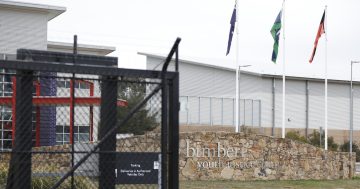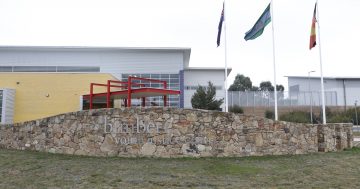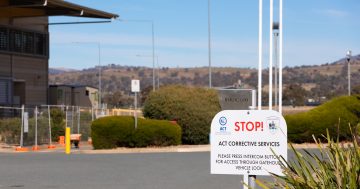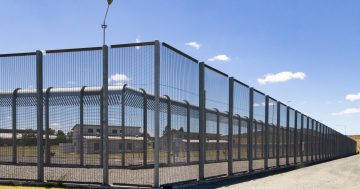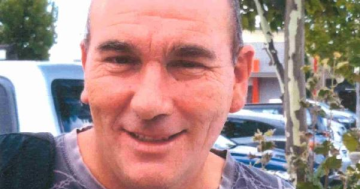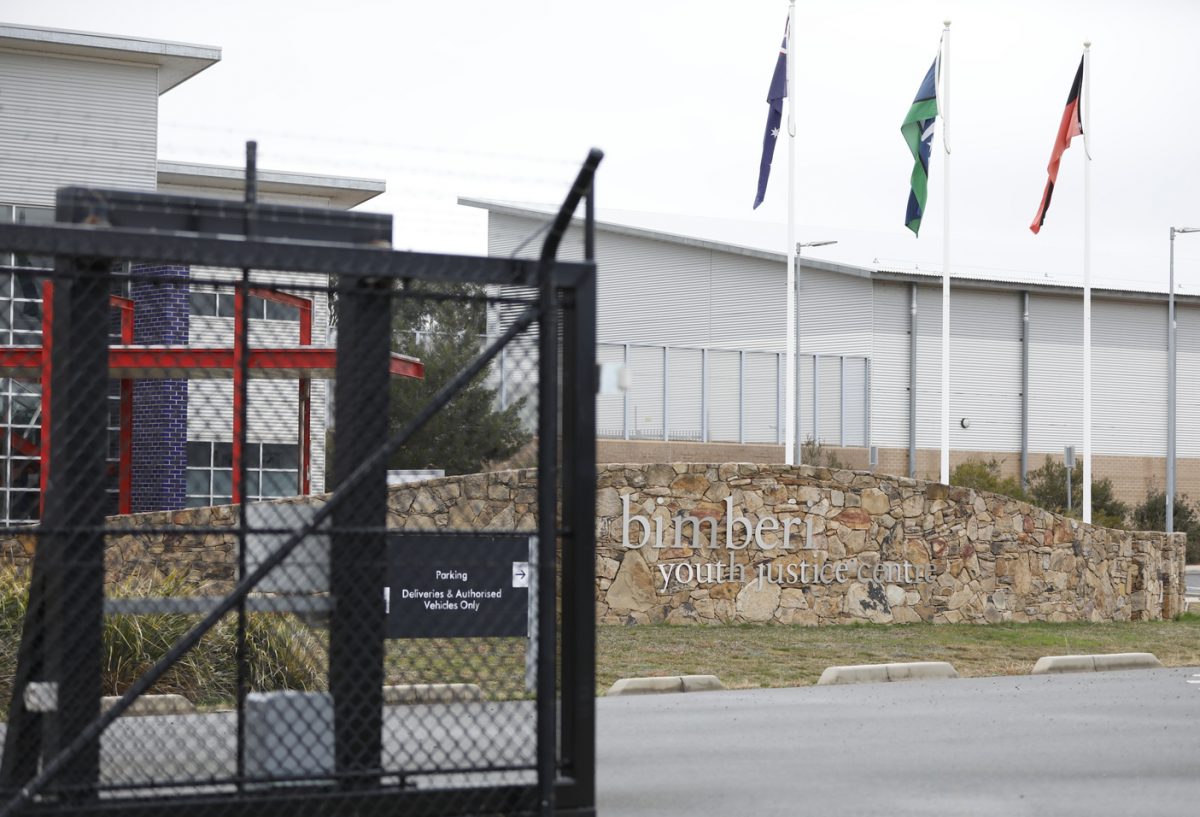
Bimberi Youth Justice Centre is too restrictive and fails to offer ways to prevent young people from reoffending. Photo: Region.
Detainees at the ACT’s youth detention centre should be able to hug and kiss visitors, a practice that had been banned since 2020 but is the norm in other jurisdictions and at the Territory’s adult jail, a new report has recommended.
The 2024 Healthy Centre Review of the Bimberi Youth Justice Centre from the ACT Custodial Inspector found that an overcautious emphasis on security since the 2019 riot was impacting the emotional and social well-being of detainees and undermining attempts to use more therapeutic approaches.
“The presumption of no physical contact at visits, with Youth Detention Officers closely monitoring young people and their visitors, runs contrary to a therapeutic, rights-based, child-centred approach,” the Review Team said.
“This presumption against physical contact with loved ones is unacceptable and cannot be justified in a human rights jurisdiction. Visits should be a place of support, connection and healing and limitation on contact should only ever be done on the basis of an individualised evidence-based risk assessment.”
Practices such as the ban on physical contact with visitors and the use of collective punishment were more restrictive than those at maximum security adult prisons, including the Alexander Maconochie Centre (AMC).
“Some young people are detained in Bimberi for months or even years. Not allowing families to hug lacks humanity and is not what we should expect in the ACT,” Custodial Inspector Rebecca Minty said.
The report noted that a total lockdown of the centre was a standard response to every incident, no matter how minor, causing significant and unnecessary disruptions and fuelling resentment.
The review said the continuing of the COVID-era ban on physical contact and the use of collective punishment showed that the description of Bimberi as a ‘human rights compliant’ facility was a hollow statement.
Detainees were only allowed to leave the centre for health appointments, despite legally being able to leave for employment and education as well, which could help prepare them for release and reduce the risk of reoffending.
The Review Team found that this may be a key cause of recidivism. During the six-month focus of the review, of the 87 young people released from custody, 32 individual young people ended up back in the centre.
“This suggests existing approaches are not working for these young people,” the report said.
The review noted that despite this cycling in and out of detention, there was still no adequate, comprehensive throughcare program to help young people adjust to being back in the community despite multiple recommendations.
“Throughcare needs to be prioritised and funded now – for our young people, and to keep the community safer through reduced reoffending,” Ms Minty said.

ACT Custodial Inspector Rebecca Minty says a clear vision is needed for Bimberi. Photo: Liv Cameron.
Bimberi also did not use body scanner technology when searching detainees.
Ms Minty said the ACT should immediately invest in body scanning technology as used in other jurisdictions.
“This would help keep the centre safe and avoid strip-searching of young people,” she said.
The report also called for action to prevent young people being detained while on remand.
On an average day in 2022-23, there were 15 young people detained, most of them on remand and around one in three identifying as Aboriginal and/or Torres Strait Islander.
Ms Minty said the ACT must invest in early intervention and diversionary programs that could keep young people out of detention.
The Review Team found the lack of a clear government articulation of a strategic purpose for Bimberi was at the root of many of its issues.
“If the ACT Government takes the opportunity to set a clear vision for Bimberi, which emphasises how the Centre should prioritise therapeutic outcomes over risk elimination, there is the potential for many improvements,” Ms Minty said.
The review cited research on models of care overseas, such as in Spain, that could be adopted at Bimberi, including centres where most staff have an education or therapeutic background, with just a few staff focused on security.
In many of these centres, young people regularly attended education and employment in the community, with low rates of use of force, absconding and reoffending rates.
The review made 15 recommendations, including that the government act on a host of recommendations from previous reviews going back to 2019.
The Review Team included several experts, including a public health physician, the former ACT Aboriginal and Torres Strait Islander Children and Young People Advocate, a team member with lived experience of detention and an expert in detention monitoring.












